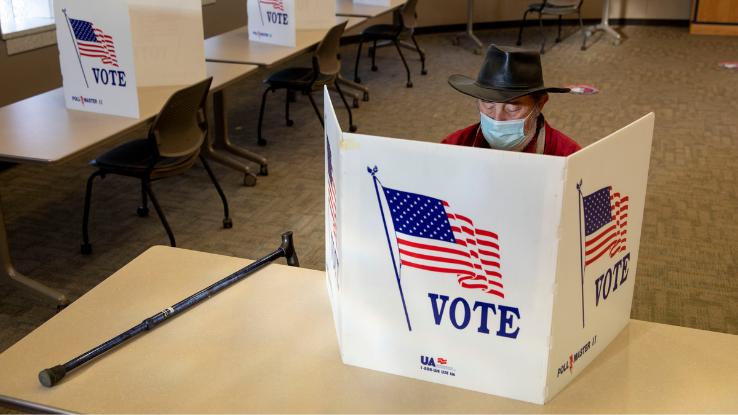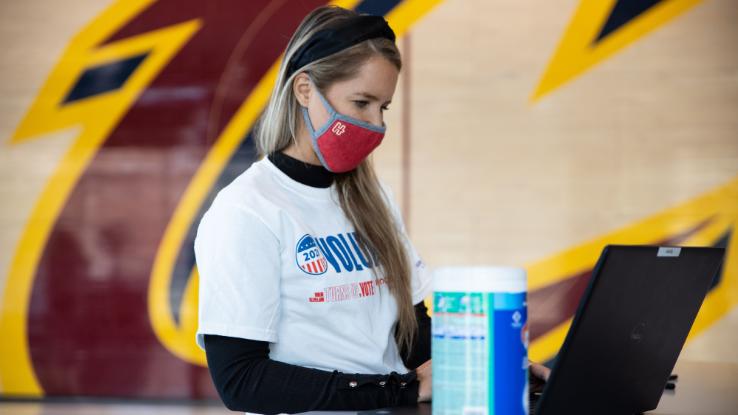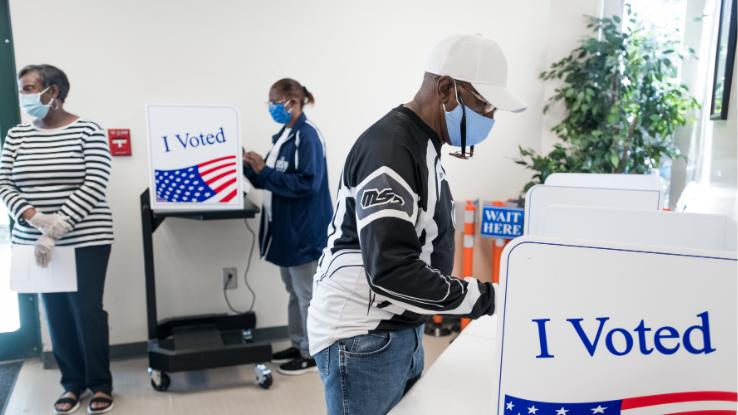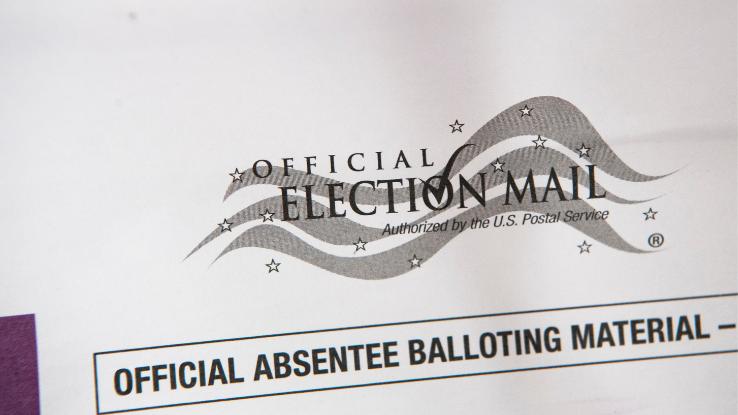Where Am I Registered To Vote

The COVID-19 pandemic has changed everything in 2020, including the way we vote. Many people are now voting by mail, but it may not be possible for all voters to use mail-in ballots. People who require language translation or visual or physical assistance may need to cast their votes in person. Plus, many voters prefer to cast their votes at the polls physically — and some states require voters to have a valid excuse to use mail-in ballots, which may force them to visit a polling place.
According to The New York Times, 60 million ballots are expected to be cast in person this fall. But how can you stay safe at the polls amid a pandemic? Election officials have addressed health concerns at polling sites, and CDC health experts have provided voting safety tips. By taking the right precautions, you can minimize your risks of voting in person.
What Voters Should Expect at Polling Places
For some folks, their usual polling place may have changed this year. To accommodate COVID-19 safety precautions, spacious and well-ventilated sites will be utilized now that cramped building basements and senior-living centers are unsuitable and unusable. New voting sites may be set up at malls, school gyms, parking lots, convention centers and other areas with room for extra distance between voting booths.

Due to health concerns for senior citizens, you may engage with more younger poll workers on Election Day. Government officials and nonprofit organizations have been recruiting many healthy young citizens to work the polls. For instance, Philadelphia has campaigned to find 3,000 millennials to staff voting sites, drawing them in with a pay raise.
Voters can also anticipate that poll workers will have been trained on safety and sanitation practices, so they'll frequently disinfect equipment and other high-touch surfaces. To maintain social distancing, poll workers will position voters farther apart from each other. Voters will be required or recommended to wear proper face coverings in at least 33 states, so some polling sites plan to offer face masks to anyone without one. To keep germs from spreading, each voter should receive their own pen for paper ballots or hand covering for touchscreen ballots.
Although polling places have prepared modifications to reduce risks of spreading COVID-19, there are also some actions voters can take to protect themselves and others.
There are many precautions voters can take to keep voting locations healthy and safe. If you think you've been exposed to the coronavirus as Election Day approaches, take a test to ensure you don't have the virus while voting. You may need to have your test done a few days or a week before Election Day to get the results on time. It'll help give you peace of mind if you're concerned about possible exposure or spreading the virus.

These recommendations from the CDC can also help you stay safe while voting in person:
- If your polling site allows you to vote in person before Election Day, take advantage of it. Contact your local election administration or secretary of state to find out if early voting is available for you.
- Vote at off-peak hours, like mid-morning.
- Wear a mask.
- Bring your own black pen or stylus for touchscreen voting, but ask poll workers for permission before using it.
- Avoid gathering with friends or acquaintances at voting sites.
- Don't greet others using physical contact, such as a handshake.
- Maintain social distancing of at least 6 feet from other voters and poll workers at all times, especially while in line.
- Practice healthy hygiene by washing your hands or using hand sanitizer containing at least 60% alcohol.
- Don't bring others with you if it's unnecessary, such as children or adults who aren't eligible to vote.
- Talk to poll workers if you have questions or concerns about safety measures at the site.
- If you're disabled or high risk, vote curbside if this option is available.
- If you feel sick, remain in your car and engage in curbside voting if possible. Be sure to wear a mask.
- Wash your hands after you leave the polling place.
What to Do If You Have COVID-19 or a Member of Your Household Does
If you or household members are COVID-19 positive as Election Day nears, you should remain home to keep poll workers, volunteers and other voters safe. However, the most reliable way to protect everyone and vote is to request an exemption for a mail-in ballot or an absentee ballot as early as possible.

Many states, such as Michigan and Pennsylvania, send absentee ballots to voters without an excuse as long as they request those ballots ahead of time. However, rules and deadlines vary by each state. For instance, Alabama recommends people to submit absentee ballot applications at least five days before Election Day and send ballots to be received by the Absentee Election Manager no later than noon on Election Day. Check with your state for recent changes regarding no-excuse absentee voting rules and deadlines as soon as possible.
It's important to know how to stay safe and protect others when voting in person. If you have questions before Election Day, contact your local election office. While you're at the polls, don't be afraid to reach out to poll workers and volunteers for help.
MORE FROM ASK.COM
Where Am I Registered To Vote
Source: https://www.ask.com/culture/keep-yourself-and-others-safe-while-voting-in-person-november?utm_content=params%3Ao%3D740004%26ad%3DdirN%26qo%3DserpIndex
Posted by: garrettjoacknot.blogspot.com

0 Response to "Where Am I Registered To Vote"
Post a Comment